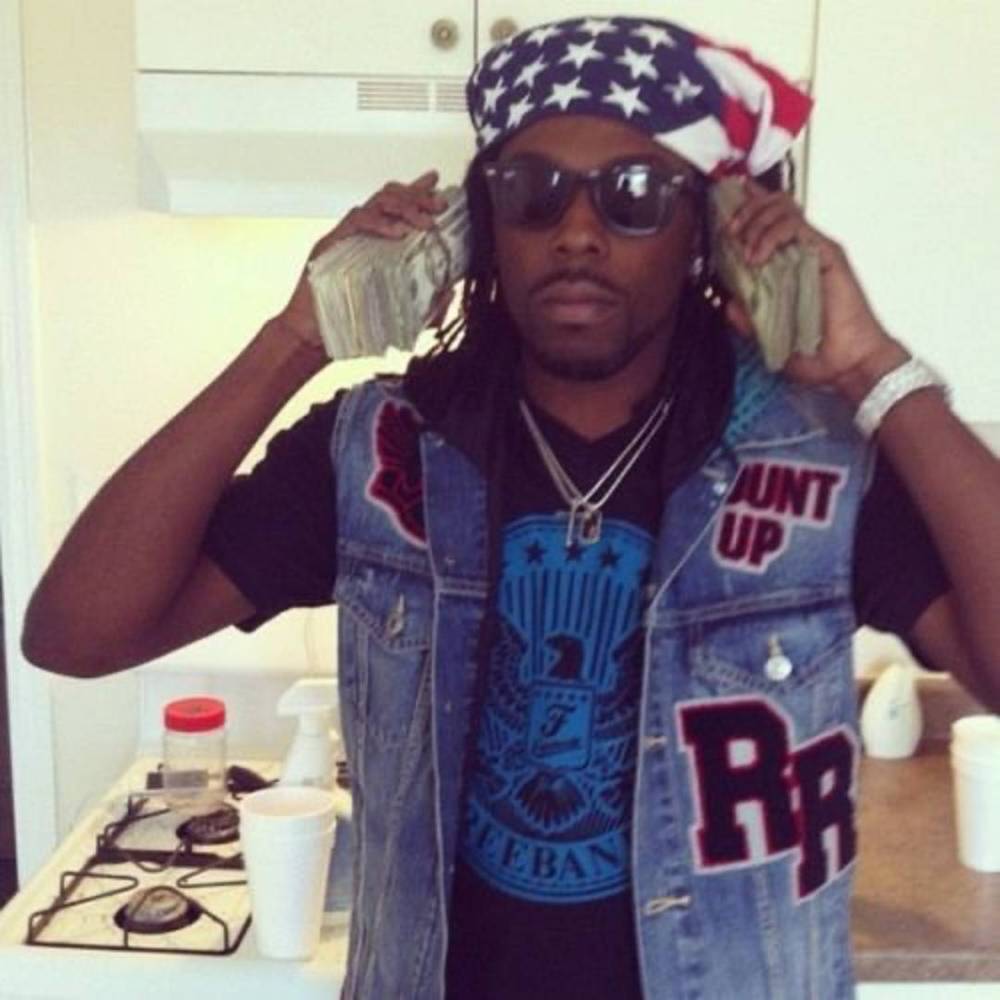Image via Montreality/Instagram
Yoh Phillips is preaching Jugg King Forever.
Young Scooter called it “count music.” And his rapping never strayed far from subjects related to trapping: hustlin’, juggin’, reppin’, stackin’, spendin’, flexin’, workin’, and finessin’. He made get-money Greek epics straight from Zone 6. The Human Calculator complete with his own iconic “Count Up!” ad-lib. Scooter was always Scooter, a stone-faced straight shooter who told you exactly how it was and who didn’t care if you couldn’t read between the lines. He knew the streets would feel him if no one else did.
Last Friday, March 28th, the news broke that South Carolina-born, Atlanta-raised rapper had died on his 39th birthday. The reports remain murky, but most sources allege that he severed an artery in his leg while running from the police. He died in the streets and the streets never stopped loving him. If you came from the Atlanta trap world, it was a given that you needed a Scooter guest verse. At one point, he repped both Freebandz and Brick Squad. He wrangled Rick Ross, Gucci, and Birdman to appear on the remix of his breakout hit “Colombia.” His respect among his peers was absolute. And he did it all without needing to sign a major label deal.
Scooter never attempted to be the best rapper in the traditional sense. Being lyrical was less interesting to him than being real, and there was nothing realer than earning dollars and bossing up. His stature in the streets and the respect of the neighborhood was more relevant to him than being a Billboard-charting rap star. He rarely switched up his weighty, slow-moving, voice of God cadences. He rapped nonchalantly but with total confidence, a style that could be traced back to the late Shawty Lo or Gucci Mane. There were no verbal pyrotechnics or auto-tuned trap melodies. It was unemotional and matter-of-fact – popular but uncommercial. Eternal and imposing as a granite obelisk.
Scooter got his start following in the footsteps of his childhood friend, Future. And no matter how famous Pluto became, he always returned the love by featuring Young Scooter everywhere: from his early Datpiff-only mixtapes to platinum releases on Epic. And even if Scooter didn’t have a verse on a Future project, there would often be a name drop to honor him.
Future and Scooter were inseparable Kirkwood kingpins, who went from the streets to the studio, recording music that took them from the projects onto private jets. They grew up in the same notorious Atlanta neighborhood known as Lil’ Mexico. Why was it called Lil’ Mexico? As Scooter once said on Noisey Atlanta: “It’s because we move like Black Mexicans, we’re workers, we don’t stop working.”
Great rappers rarely rise alone. They usually ascend in cliques or crews who move with brotherly devotion. When fame and fortune occur, there is often betrayal, beef, or a public break-up that severs the once close-knit ties and divides superstars from those who were there when the penthouse was a basement. The relationships that actually last are admirable in an industry where there are few examples of long-standing camaraderie. It’s a testament to Scooter’s character that his bonds remained unbroken. His day ones remained steadfast until his last days.
There are few Scooter songs that don’t include a shoutout to one of his many affiliations, but there was no banner he held higher than his own Black Migo Gang and Future’s Freebandz. His rapping made loyalty seem like the highest virtue. There was no greater honor than pushing their movement, stacking this paper, driving fast foreign cars, not snitching, and never going back to being broke.
Of the countless independent projects he released, 2020’s Zaytoven-produced Zaystreet, is excellent and overlooked. 2017’s Jugg King and 2018’s Triple Cross feature some of his most polished rapping. But Scooter’s most justifiably revered work was the 2012 mixtape Street Lottery: a well-woven tapestry of banging beats perfectly paired with the proud boasting of a confident trap star who found an authentic voice to thug motivate. “Colombia” still sounds monumental enough to soundtrack crack-selling if it were an Olympic sport. The potent Zaytoven-produced “Made It Threw The Struggle,” highlights why Zaytoven loved Scooter — when he found the right words, he could cut through and make anyone want to get out of bed and get on their grind.
When I returned to Street Lottery in the aftermath of Scooter’s tragic passing, what first stood out to me was the Swamp Izzo DJ tags. Before his voice was exalted on Playboi Carti’s Music – even before he hosted all three of the classic Young Thug I Came From Nothing mixtapes – Scooter was the first rapper to have a Swamp Izzo mixtape. It’s also rarely cited how Scooter is the voice you hear whenever the producer tag “ATL Jacob! ATL Jacob!” that plays at the beginning of his productions. Even the rap world’s most vaunted jeweler, Eliantte, cites Scooter as the rapper who gave him his name. I say all this to show that despite not being a giant star in the mainstream hip-hop universe, Scooter was always early to align with the trendsetters, the game-changers, and the hitmakers – not because of who they would become, but due to the communal world he cultivated.
The world might not have lost a rapper who will be enshrined in the Rock and Roll Hall of Fame, but we did lose the genuine article, a true-to-life neighborhood superstar who never turned Judas or hated on the next man’s hustle. He was much more than Future’s sidekick – he was a thoroughbred Kirkwood icon, an East Atlanta Zone 6 legend, the man who could leave the country without a passport, who could touch a mill’ cash even when the bank was closed. He was born Kenneth Bailey, but I’ll forever remember him as the Black Migo Jugg King. An immortal who was always working, who never ceased to count up. Young Scooter, may he rest in peace.


